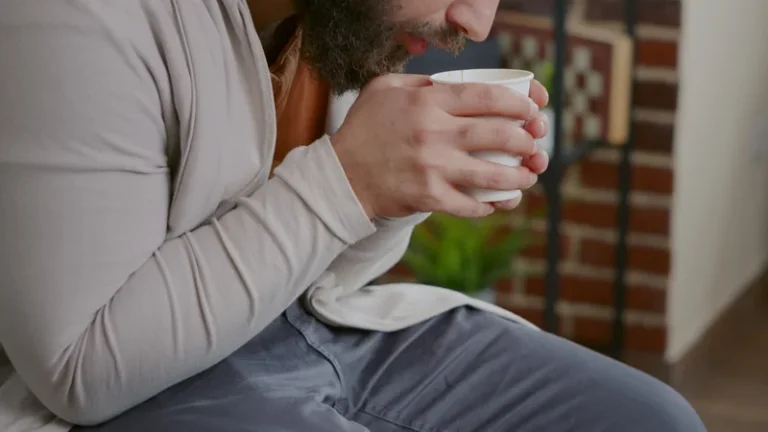
Staying stuck in this fear generally means staying stuck in addiction, but there’s much more to life on the other side of rehab. Other factors to consider while preparing for rehab are financial and legal obligations. The amount of time you going back to rehab spend in treatment can vary, and utility bills, car notes, rent, the mortgage, and tuition won’t stop while you’re gone. Applying your unique talents, skills and abilities to the world’s problems outside of recovery can also be part of your growth.

Important Factors to Consider when Applying for a Personal Loan
For people in recovery, life after rehab should be a time of continued progress toward long-lasting sobriety. Completing rehab is a big step, but continuing support is necessary to avoid relapse. After rehab, there are several great options for continuing support, all of which encourage a healthy lifestyle.
- However, this situation often results in an implosion of both career and family as secrets come out and consequences occur.
- The amount of time you spend in treatment can vary, and utility bills, car notes, rent, the mortgage, and tuition won’t stop while you’re gone.
- It’s critical to figure out who will handle your obligations before going to rehab.
- While in treatment, your focus should be on self-reflection and treatment, so leave any “extras” behind.
What Medspa Treatments Actually Boost Your Mental Health—and Why You Should Try Them
You can also keep a personal journal to document how you’re feeling each day or to have a log of what has become more or less difficult in the days leading up to treatment. Being informed about addiction, recovery, and related medical issues are all important things that will help your loved one. Addiction is a chronic disease, so there is no overnight treatment. By the end of rehab, an aftercare plan is discussed with the patient for continuing care. Although this doesn’t eliminate discomfort from withdrawal symptoms, it can be more comfortable or manageable. As for finding a doctor or rehab facility, there are various treatment options that can cater to your needs.
You’re Not Alone: Relapse Statistics
- Exercises like mediation and biofeedback encourage patients to tune in and relax, while acting as a therapeutic outlet.
- Both strong ties (close, personal relationships) and weak ties (simply being around people you know) can both influence happiness.
- The American Psychiatric Association has outlined criteria for addiction in the Diagnostic and Statistical Manual of Mental Disorders (DSM).
- Your recovery plan for success can lead you to new and exciting places.
- You might even be scared of not being able to find a good doctor or treatment program.
People in this situation are commonly referred to as a high-functioning addict. High functioning addicts often are able to maintain a level of success professionally while facing a constant battle with addiction behind the scenes. Essentially, it feels like running on a hamster wheel daily while also trying to live a secret life. However, this situation often results in an implosion of both career and family as secrets come out and consequences occur. When a person first enters rehab, they are given a thorough assessment of their background, history of alcohol and drug use, and other specific needs. During this stage, it helps to be honest, especially if there is an underlying mental illness or other condition.
Alcohol Relapse and Recovery Statistics

Your doctor or counselor can help determine what to look for and how to recognize signs of an impending relapse. Also, please don’t hesitate to call your previous treatment center’s admissions coordinator to determine their guidelines before deciding where to go next. No one likes the idea of having to return to rehab, but it can quite possibly save your life. Please reach out to a treatment provider if you need help finding a rehab after relapse. Get professional help from an online addiction and mental health counselor from BetterHelp. Relapsing during the early stages of recovery is common, and many people who do so are able to bounce back and regain control of their sobriety.
- Learning how to respond differently to these triggers, or how to avoid them in the first place, is something that can be worked on during a return visit to rehab.
- You don’t have to go back into addiction and suffer the way you did the first time.
- We receive advertising fees from purchases through the BetterHelp links below.
- If you or a loved one experienced a relapse after a period of sobriety from drugs and alcohol, you can benefit from an addiction treatment program.
- It’s normal to be nervous about making an important change but allowing the mind to be as calm as possible is a helpful strategy to take..
You don’t need to tell recruiters or interviewers your entire life story. By law, they can’t ask for personal details, like previous drug or alcohol use, time spent in psychiatrist hospitals or rehab, or other personal details. In the spirit of honesty and transparency, you can simply tell anyone who questions a gap on your resume that you were sick and needed time off to recover. That’s the truth, and it’s an honest and simple way to handle the issue. Sobriety, recovery and a full, rewarding and satisfying life are waiting for you. Now it’s time to take another step forward and embrace life after addiction treatment.

During this stage, you will not even be thinking about using drugs or alcohol. Instead, your emotions and behaviors are beginning to set you up for a relapse down the road. When someone relapses, they either did not receive the effective principles of treatment or stopped using their recovery maintenance techniques. To define relapse simply, this occurs when you return to using drugs after a period of abstinence.
How Does Medicare Cover Mental Health?

This carries them through the difficult early stages of detox, rehab, and sobriety. After the pink cloud dissipates and the optimism wears off, or life throws you a curve ball, a strong recovery is what will hold you up, not the good feelings engendered by being newly sober. Ven the most successful rehab programs aren’t right for everyone. The best treatment center graduates plenty of people who eventually relapse. If you relapse, you might want to consider different treatment options.





